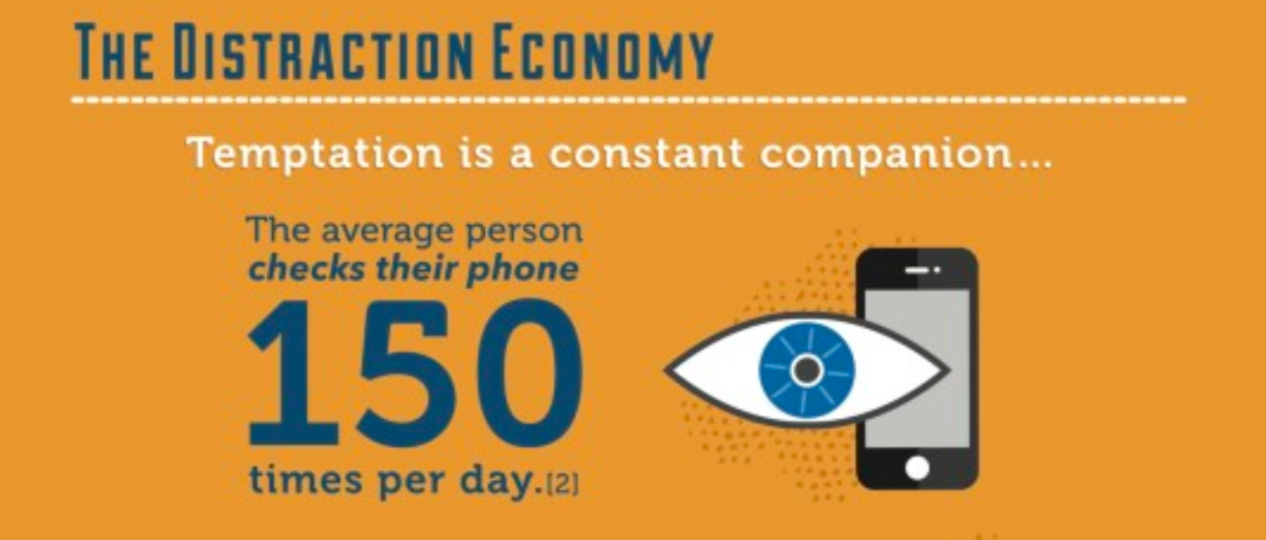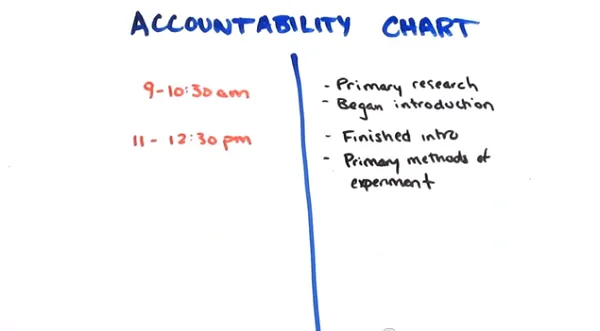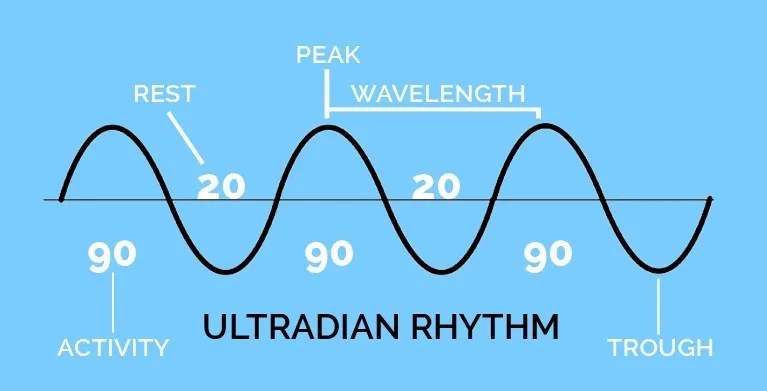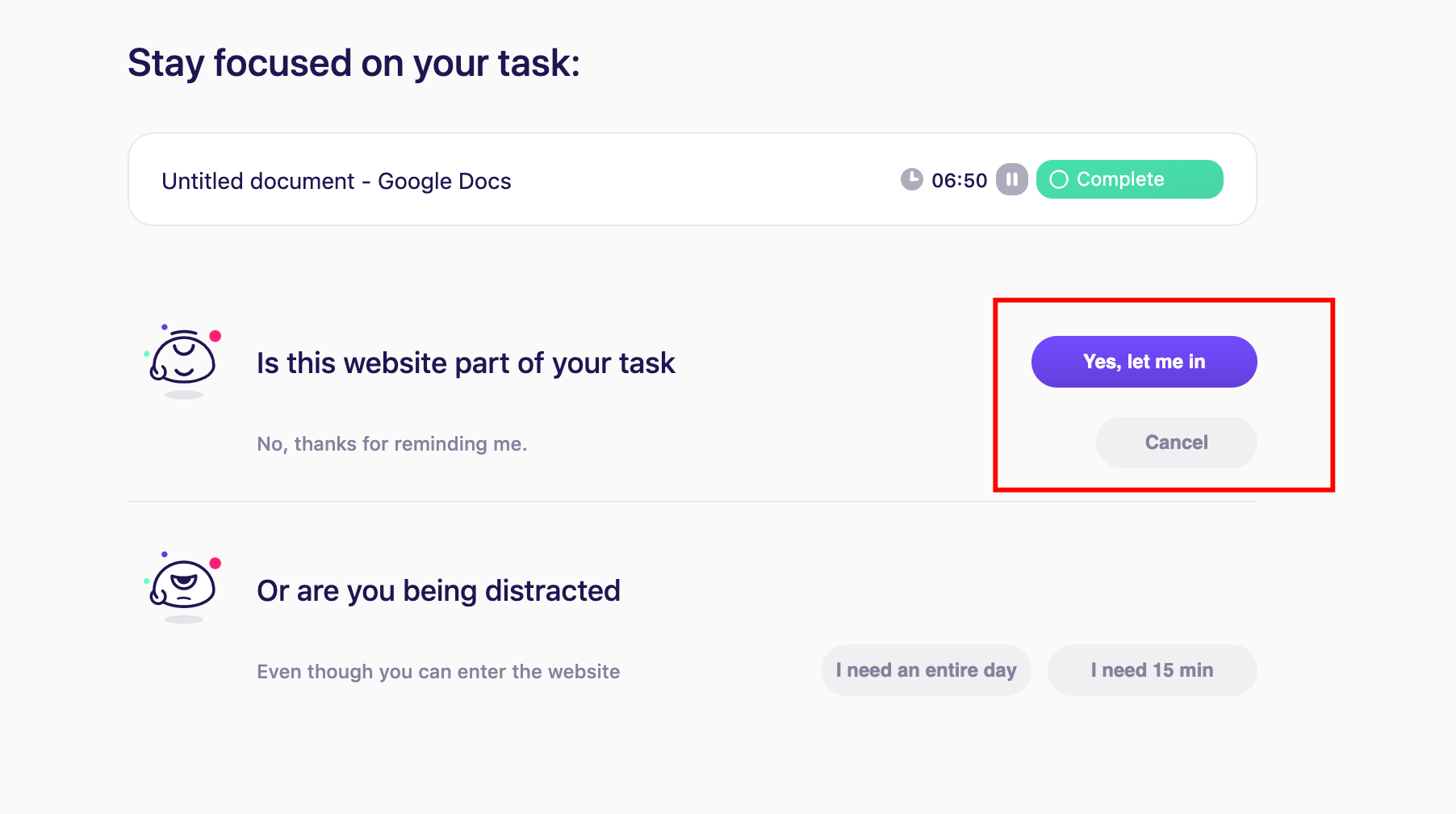43 Productivity Hacks of 2020 Based on Scientific Research
There are a ton of productivity hacks out there, but a lot of them consist of overused and generic advice. Not helpful. At all.
Here are 43 productivity hacks rooted in science that will help you become a productivity ninja.
1. Productivity Hacks 101 – Ditch Multitasking for Good. Please.
Conventional logic often assumes that multitasking is a good thing.
But numerous studies have found that it’s actually an impediment.
A study by Joshua Rubinsten, PhD and his colleagues performed four experiments that analyzed what happened when young adults jumped between multiple tasks.
Here’s what they found.
“For all tasks, the participants lost time when they had to switch from one task to another. As tasks get more complex, participants lost more time.”
The bottom line — focus on just one task at a time.
This brings me to my next point.
2. Use a Task Management Tool
Easier said than done though, right?
If this is something you struggle with, you can use a task management tool like KosmoTime to stay on track.
Just choose which task you need to focus on, like answering emails.
Click on “Start.”

Then start answering your emails.
If you get tempted to visit another site, screen from KosmoTime will pop up to keep you on track.
3. Avoid Context Switching By Focusing on a Single Task at a Time
A classic study by computer scientist and psychologist Gerald Weinberg found a clear correlation between trying to juggle multiple tasks at once — a concept known as context switching — and decreased productivity.
This is similar to the point above dealing with ditching multitasking.
See for yourself.
 Trying to complete two tasks at once decreases productivity by 20%.
Trying to complete two tasks at once decreases productivity by 20%.
And this number continues to increase along with the number of tasks, decreasing productivity by 80% with five tasks
So again, be aware of how many things you’re doing at any given time, and avoid
distractions.
4. Block Distracting Websites
Or, if there are certain websites that are annihilating your productivity and leading to frequent context switching, you can block them altogether with a website blocker such as Freedom.
Better yet, KosmoTime has blocking capabilities built in. When you’re ready to start a task, you switch off al distractions and aren’t able to access extraneous websites unless you first identify them as relevant to your task.
Facebook, Instagram, YouTube, CNN and Twitter are some of the most commonly blocked sites.
5. Put Away Your Phone
The average American checks their smartphone an astonishing 150 times per day.

According to a study on cell phone addiction led by James A. Robert, PhD, at Baylor University, “Incessant checking of emails, sending texts, tweeting, and surfing the web may act as pacifiers for the unstable individual distracting him or herself from the worries of the day and providing solace, albeit temporary, from such concerns.”
So, another key part of eliminating context switching is to put your phone away while you’re working.
6. Tame Your Notifications
Although notifications can be helpful for keeping you in the loop throughout the workday, they can also be a huge detriment when they’re allowed to get out of hand.
That’s why it’s important to be selective about notifications and get rid of non-essentials.
One of the most Zen things I did was to turn off every notification on my phone except for texts (Whatsapp and Messenger), calls, and calendar appointment.
Every freaking mobile app wants to send you notifications, and I’ve defaulted to “no” nearly every time.
Sort out apps like Slack, Asana, Trello and Microsoft Teams by importance, and set it so you’re only being notified about critical issues.
7. Practice Batching
Studies have found that 98% of people are able to focus best when performing a single type of task, rather than different types of tasks.
Batching is where you zone in on a group of similar tasks without interruptions, something that can have a major impact on productivity.
Check out this guide from monday.com for a full rundown on this topic.
If you’re looking for a tool to assist in batching, KosmoTime can help with that as well.
8. Try the Pomodoro Technique
A study by the University of Illinois found that short breaks can have a profound impact on productivity.
One of my favorite productivity hacks that’s designed for efficiently peppering in short breaks is the Pomodoro Technique, which works like this.
 It involves working intently on a task for 25 minutes, then taking a five minute break.
It involves working intently on a task for 25 minutes, then taking a five minute break.
After every fourth break, take a longer break between 15 and 30 minutes.
9. Use the Two-Minute Rule for Small Tasks
When it comes to small tasks, using the two-minute rule can help you slash through them to avoid little things from piling up.
And it’s super simple.
If there’s a necessary task that can be done in two minutes or less, go ahead and knock it out right away.
David Allen popularized the two-minute rule in his famous book Getting Things Done. It is, however, one of the more controversial of his productivity hacks.
The two-minute rule is a variation on the concept of batching.
Instead of batching a type of task, you’re batching a chronology of tasks — short, sweet, get ’em done. It should be used with caution, since it could lead to cognitive overload due to the inherent nature of context switching involved.
10. Use a Time Tracking App
Another big part of eliminating productivity drainers is simply knowing how you’re spending your time.
Using a time tracking app like KosmoTime provides insights into where your time is going, which can help you identify inefficiencies and optimize your schedule.
And the impact can be huge, with daily time tracking able to decrease productivity leaks by as much as 80%.
Many people tend to avoid time tracking, afraid that the act of tracking the time will in itself take precious time.
There are two answers to this:
- While it may take a minute of accrued “extra” time to track your time, the benefits pale in comparison to the “lost” 5-10 minutes daily. You’ll get an eagle eye perspective on how you’re spending your time and stop tragic time wasters.
- Use KosmoTime Time. KosmoTime provides the option to automatically track time spent on tasks, making it virtually effortless to track your time. When you start a task, not only does KosmoTime block digital distractions, but it also starts the clock ticking on how long a given task tasks.
11. Set Aside Email Time
One of my personal productivity pitfalls is email. And apparently I’m not the only one.
The average person checks their email 15 times a day.
Setting aside time specifically for email and staying away from it for the rest of the day is one of the simpler productivity hacks that helps you stay more focused and avoid getting sucked into the email rabbit hole.
On Monday of this week, I had 351 emails in just one of my inboxes. (I have 3 inboxes.) I’m not talking about an inbox full of marketing pablum, either. These are emails that require thoughtfulness, action, and responses.
Using KosmoTime, I blocked my distractions and spent a solid 1 hour and 20 minutes on my email.
By the end of my sprint, I was down to just 100 emails.
Focusing on email, rather than dashing in and out (beware, context switching!), was an enormous boon to my productivity.
12. Dedicate Time to Work Alone
Chatty co-workers and office noise are cited as being the top two distractions in the workplace.
Dr. Tim Welsh of the University of Calgary says, “Regardless of their intentions, having an individual working on a different task — within your field of vision — could be enough to slow down your performance.”
That’s why it’s important to dedicate time to work alone each day so you can focus on essential tasks.
13. Work from Home Whenever Possible
One of the easiest ways to assign blocks of time to work alone is to work from home.
A Stanford University study involving a travel agency found that call center employees were able to increase their productivity by 13% by working from home.
14. Set Firm Deadlines
Procrastination is another big productivity killer.
But a study by Dan Ariely from the Massachusetts Institute of Technology found that setting firm deadlines reduces procrastination.
The key is making them concrete (e.g. it must be completed by 2pm) and realistic.
Check out this post from Effectiviology for more on this.
15. Create an Accountability Chart
You can take it one step further by creating an accountability chart, which features two columns.
The column on the left is where you write down blocks of time, and the column on the right is where you write down the specific tasks you need to accomplish.
 This is huge for raising your baseline discipline and staying on track.
This is huge for raising your baseline discipline and staying on track.
16. Wager Money to Complete Your Goals
Deadlines and accountability are great.
But sometimes you need a little extra motivation to stay on track.
One way you can do that is to wager money where you pay out a certain amount if you don’t meet your goal.
Beeminder is a great tool for this.
17. Set the Thermometer to 77 Degrees
Another of the big productivity hacks is creating the right working environment.
A study by Cornell University found that the optimal room temperature for maximum productivity is around 77 degrees.
When working in a chilly room, workers were more prone to making errors.
But “when the office temperature in a month-long study increased from 68 to 77 degrees Fahrenheit, typing errors fell by 44% and typing output jumped 150%.”
18. Listen to Productivity Boosting Music
Simply listening to music is another one of the major productivity hacks, and research indicates that relaxing music impacts mood, mental performance and physical performance.
One study involving 2,000 workers found there was a 15% increase in productivity when listening to music.
This video has the full details.
In terms of genres, classical, jazz, instrumental sounds and even video game soundtracks are ideal.
19. Drink Plenty of Water
Water is obviously important, and drinking plenty of it is vital for staying healthy.
But according to research from the University of East London, water also helps your brain stay more focused on tasks.
In fact, participants who drank water after breakfast performed tasks 14% quicker than those who didn’t.
20. Make Sleep a Priority
Did you know that being even moderately sleep-deprived results in a 50% slower response time and lower accuracy rate than drinking alcohol?
It’s true.
Sleep deprivation is a massive productivity killer, so make sleep a top priority.
21. Give Yourself Adequate Downtime
We’re living in an era where burnout and fatigue have reached epic proportions.
Being constantly bombarded with tasks without enough downtime leads to “cerebral congestion,” leading to unhealthy stress and lower productivity.
That’s why experts like meditation teacher Michael Taft emphasize the importance of taking time off to relax and recharge.
Nature walks, meditation and naps can be especially helpful.
22. Create a Wins List
In a 2011 book called The Progress Principle, professors Teresa Amabile and Steven Kramer discovered that celebrating small wins can help spark motivation and boost productivity. \
Creating a wins list is a great way to take inventory of your progress, and you can use it for fuel to overcome challenges and be more productive.
23. Hold Meetings Remotely Rather Than In-Person
Meetings are frequently cited as being time drainers and a big source of distraction.
 While you may not be able to do away with meetings altogether, holding them remotely can help save time and laser focus on the topics that truly need discussing.
While you may not be able to do away with meetings altogether, holding them remotely can help save time and laser focus on the topics that truly need discussing.
24. Forget About Perfectionism
Another enemy of productivity is trying to perfect in every single task you work on.
As Anne Clark of Craft Your Content puts it, “Sometimes, paying unnecessary attention to every detail can do more harm to your productivity than good. In the quest for perfection, if you focus too much on every single detail, you are wasting your time.”
This is something Science Magazine agrees with, adding that you’re usually better off settling for being good enough.
25. Productivity Hacks – Learn Keyboard Shortcuts
It may not seem like that big of a deal, but using keyboard shortcuts can make you way more productive in the long run.
In fact, experts say that it can save you a staggering eight workdays per year, which is equal to 3.3% of your total productivity.
Check out this list of keyboard shortcuts from Buffer for ideas.
26. Learn Touch Typing
Another of the productivity hacks for getting more done with less wasted motion is touch typing, where you learn how to type without looking at your keyboard.
This can take typing your speed from 40 words per minute (the average) to 60 – 80 words per minute.
Check out this resource from TypingClub to learn how to touch type.
27. Increase Your Read Speed
Besides typing faster, learning to read faster naturally helps boost your productivity.
This article from Tim Ferriss will show you how to read 300% faster in just 20 minutes.
28. Prep the Night Before
Rather than spending time at the start of your day getting ready, prep the night before.
Figure out your strategy, prepare your lunch, prioritize tasks, and so on.
29. Keep Your Workspace Tidy
41% of office workers believe that having a tidy workspace is essential for getting tasks done.
Too much clutter makes it harder to concentrate and can lead to cognitive overload
This is science.
Harvard Business Review’s case-closed treatment of the subject pointed out that cluttered environments lead to heightened levels of cortisol, which in turn, led to anxiety, depression, distraction, irritability, and other unpleasant side effects.
Harvard isn’t the only one destroying the idea that messy desks are cool. The authoritative International DOI Foundation came up with research that surfaced the same findings — “clutter as a physical stressor in the workplace.”
To cut through to the point of the messy desk deal, here it is — a messy desk will make you less productive.
You may defend your messy desk style with geniuses like Steve Jobs and Albert Einstein who prided themselves on their messy desks.
“If a cluttered desk is a sign of a cluttered mind, of what, then, is an empty desk a sign?” Thomas Edison
Here’s a look at Jobs’s home office.
 My brain would explode.
My brain would explode.
But Jobs and I have different brains, obviously.
Not to patronize, but changes are your brain isn’t the same as Edison’s or Jobs’s.
Anecdotal episodes from Jobs and Edison aside, make it a point to routinely clean and purge unnecessary items from your workspace.
30. Unplug After Work
Technology and remote work capabilities have been real a real-changer.
But they also make it difficult to unplug, and can consequently lead to cerebral congestion.
This is actually the number one issue people that work remotely struggle with at 22%.
 That’s why it’s important to set a clear schedule where you’re unavailable.
That’s why it’s important to set a clear schedule where you’re unavailable.
Many now-remote workers used the after-work commute to unwind. In case your commute today consists of a walk downstairs, schedule ten minutes at the end of your day to plan, play a video game, or better yet, meditate.
31. Pare Down Your Tech
There’s certainly no lack of gadgets these days, with the average person using more than six in 2020.
When used responsibly, gadgets can help you accomplish more.
But when their usage gets out of control, it can hurt your productivity.
 So, if your smartphone, smart watch, etc. are getting in the way, pare them down to the essentials.
So, if your smartphone, smart watch, etc. are getting in the way, pare them down to the essentials.
This applies to apps as well as gadgets.
Mark Cuban has only thirteen apps on his two phones.
Thirteen.
Granted, you’re not Mark Cuban. (If you are, thanks for reading this, Mark!) But maybe you can do with a few less apps, too.
32. Follow Your Own Rhythm
Everyone has a natural rhythm between work and rest in which they function at their optimal level.
One of the productivity hacks mentioned by Susan Weinschenck, PhD, in Psychology Today is observing your daily rhythm and identifying when you have high energy and when your energy wanes.
Then, adjust your day accordingly based on your rhythm.
33. Understand Ultradian Rhythms
It’s also helpful to know about ultradian rhythms, a concept that states most humans tend to operate most productively when working for 90 minute sessions, followed by a short break of 15 – 20 minutes.
 This falls in line with the Pomodoro Technique, but focuses on longer durations.
This falls in line with the Pomodoro Technique, but focuses on longer durations.
34. Develop a Routine
Once you know what works for you, develop a routine so you can follow the same basic patterns.
Having a blueprint like this allows you to flow effortlessly throughout your day, and you can make gradual improvements to optimize it.
35. Let in Lots of Natural Light
Natural light (or the lack thereof) can also affect productivity.
One study had 27 workers work in a windowless room, and 22 worked in rooms with exposure to natural light.
The latter exhibited more physical activity and longer sleep, which in turn, resulted in increased productivity.
36. Infuse Nature Into Your Workspace
Plants act as much more than just decorations.
Research has found that placing plants in a workspace can increase employee productivity by as much as 15%.
So make an effort to “greenify” your workspace.
37. Exercise Regularly
It goes without saying that exercise is important and positively benefits your life in many ways.
But one benefit that might not be so obvious is workplace productivity.
A study performed in Denmark found “improved cardiorespiratory health and muscle strength, these health improvements, in turn, saw increased productivity and fewer lost work days through illness.”
So be sure to get in frequent exercise and keep moving throughout the day.
39. Limit Your News Intake
It’s nice to know what’s going on in the world, especially at this time (summer, 2020)/
But too much news can be a major source of distraction, especially considering that it’s 95% negative.
Using a tool like KosmoTime can help you easily block news sites you’re prone to check.
And if you absolutely have to read it, you can bookmark it for later.
 40. Start Your Day Out on a High Note
40. Start Your Day Out on a High Note
A study by Ohio State University found that starting your day out in a good mood increases your odds of having a productive day.
So do your best to get in a positive headspace at the start of each day.
Going back to number 21 of these productivity hacks, celebrating small wins by creating a wins list can be a huge help.
41. Use Positive Self Talk
Another way to consistently get into a better headspace is through positive self talk.
A study involving over 44,000 participants found that telling yourself things like, “I’ve got this,” or “I’m going to succeed” can improve performance and increase the level of effort you exert.
42. Break Intelligently
Whenever it’s time to chill out and take a break, use that time productively, picking regenerative tasks that will help you relax.
For instance, you might catch up on your favorite YouTube channels, talk to a funny co-worker or take a walk outside.
43. Increase Your Internet Speed
Finally, you can crank up your productivity by simply getting faster internet.
A study found that cities with fast internet speeds are more productive and report a higher GDP compared to those with slower internet speeds.
Therefore, it’s worth evaluating your current internet package and seeing if there’s a faster option available.
Not too long ago, I took the plunge and boosted my Internet speed from around 100 mbps down to 500+ mbps down. It made a huge difference in my productivity and was well worth the extra $10/mo.
Productivity Hacks – FAQs
What are the benefits of productivity hacks?
- Lower stress
- Less cognitive load
- Increased profits.
What are some specific techniques for productivity hacks?
- Avoiding context switching
- The Pomodoro Technique
- Batching
- Capitalizing on ultradian rhythms
What are some environmental changes that can increase productivity?
- Let in more natural light
- Listen to music without words
- Greenify your workspace
Conclusion
A big part of being more productive is simply understanding some basic scientific principles and how the human mind works.
These productivity hacks focus on several key areas and should help you get the absolute most out of your workday.
Looking to eliminate distractions and get more done? Learn how KosmoTime can help.

